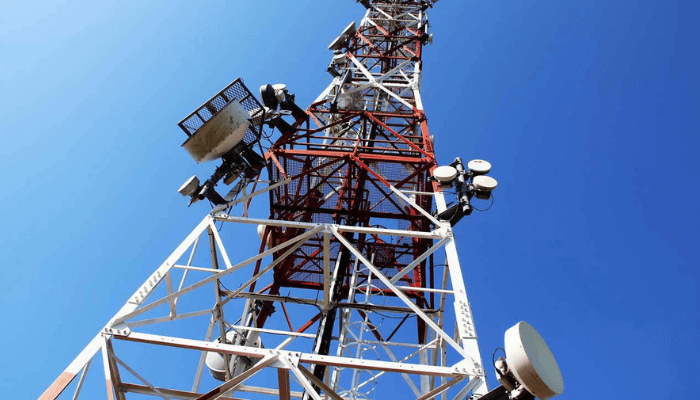The growth of digital services has continued to surge despite Nigeria’s economic challenges, marked by reduced purchasing power, double-digit inflation, and high petrol prices.
This is evident in the 101.80 percent increase in value added tax (VAT) revenue in the information and communication sector from the first half (H1) of 2022 to the same period in 2024.
VAT, currently set at 7.5 percent, is a consumption tax subscribers pay after using services like calls, SMS, data, and more. Revenue from VAT in the sector has grown from N127.03 billion in H1 2022 to N192.59 billion in H1 2023 to N256.34 billion in H1 2024, indicating a 102 percent growth over the period.
The information and communication sector encompasses telecommunications and information services; publishing; motion picture, sound recording and music production; and broadcasting. However, telecoms alone accounted for 82.74 percent (N2.99 trillion) of the sector’s N3.62 trillion Q2 2024 GDP contribution.
Since 2019, the growing demand for internet services has been a key driver of telecoms growth. Adeolu Ogunbanjo, national president of the National Association of Telecoms Subscribers, highlighted this trend, noting that “more people are online.”
The World Bank, in 2023, credited the sector’s GDP growth to increased data usage.
“The information and communications technology sector, which did not contract even during the 2020 recession, expanded by 10.3 percent y-o-y due to increased consumption of data services by households and businesses and higher subscriber numbers,” it stated.
Karl Toriola, chief executive officer of MTN Nigeria, echoed this, noting that “A lot of people are shifting their consumption from traditional voice and circuit switch services to data services…”
Read also: Nigeria’s telecom sector runs into bump in threat to economy
Monthly internet usage has surged by 501.99 percent since 2019, largely driven by increased demand for streaming and other online services, mainly accessible through smartphones.
According to a report by GSMA, which protects the interests of mobile network operators worldwide, 85 percent of Nigerians who use mobile internet make or receive video calls, 75 percent watch free online videos, and 54 percent listen to free music online.
Data from the Nigerian Communication Commission (NCC) reveal that monthly internet usage jumped from 125,149.86 terabytes (TB) in December 2019 to 753,388.77 TB by March 2024.
BusinessDay’s analysis shows that the monthly amount spent on internet access has risen to N216.59 billion in 2024, from N35.98 billion in the previous year, with the average price of 1GB at N287.5.
This increase in usage has also translated to benefits for GDP and government revenue. In Q2, 2024, the total VAT collected was N1.56 trillion, and the information and communication contributed a little above nine percent to it.
The National Bureau of Statistics (NBS) said, “The top three largest shares in Q2 2024 were manufacturing with 11.78 percent; information and communication with 9.02 percent; and Mining and quarrying with 8.79 percent.”
Rising VAT revenue aligns with the government’s plan to boost telecom sector earnings. In his 2023 blueprint for the industry, Bosun Tijani, minister of communications and digital economy outlined a goal of double the sector’s revenue by 2027.
Former President Olusegun Obasanjo has attributed the telecom industry’s success to the favorable environment provided by the government. However, recent economic challenges threaten this growth, which could potentially reduce internet usage due to declining service quality.
“They (telcos) are likely to cut back on either capital or operating expenditure or both. This results in a shrinking sector, which leads to subscribers receiving a poorer quality of service and delays in coverage expansion,” GSMA noted.

